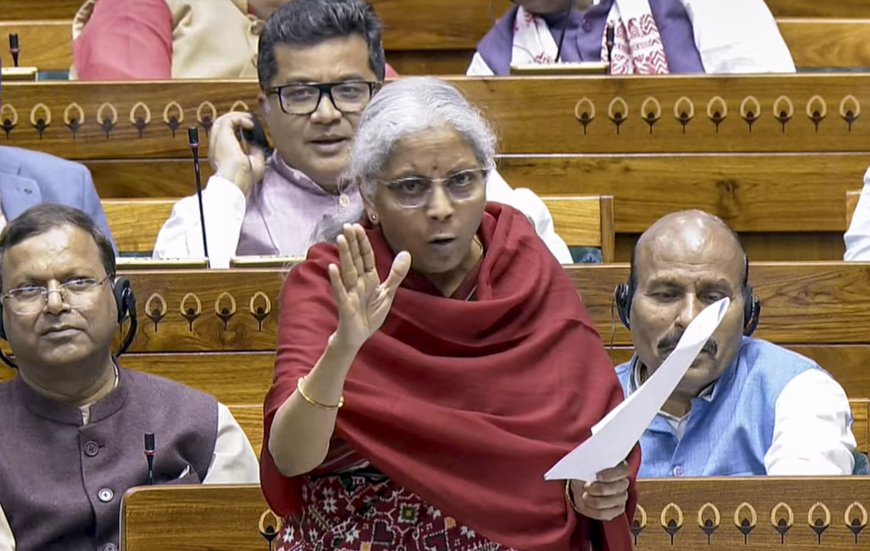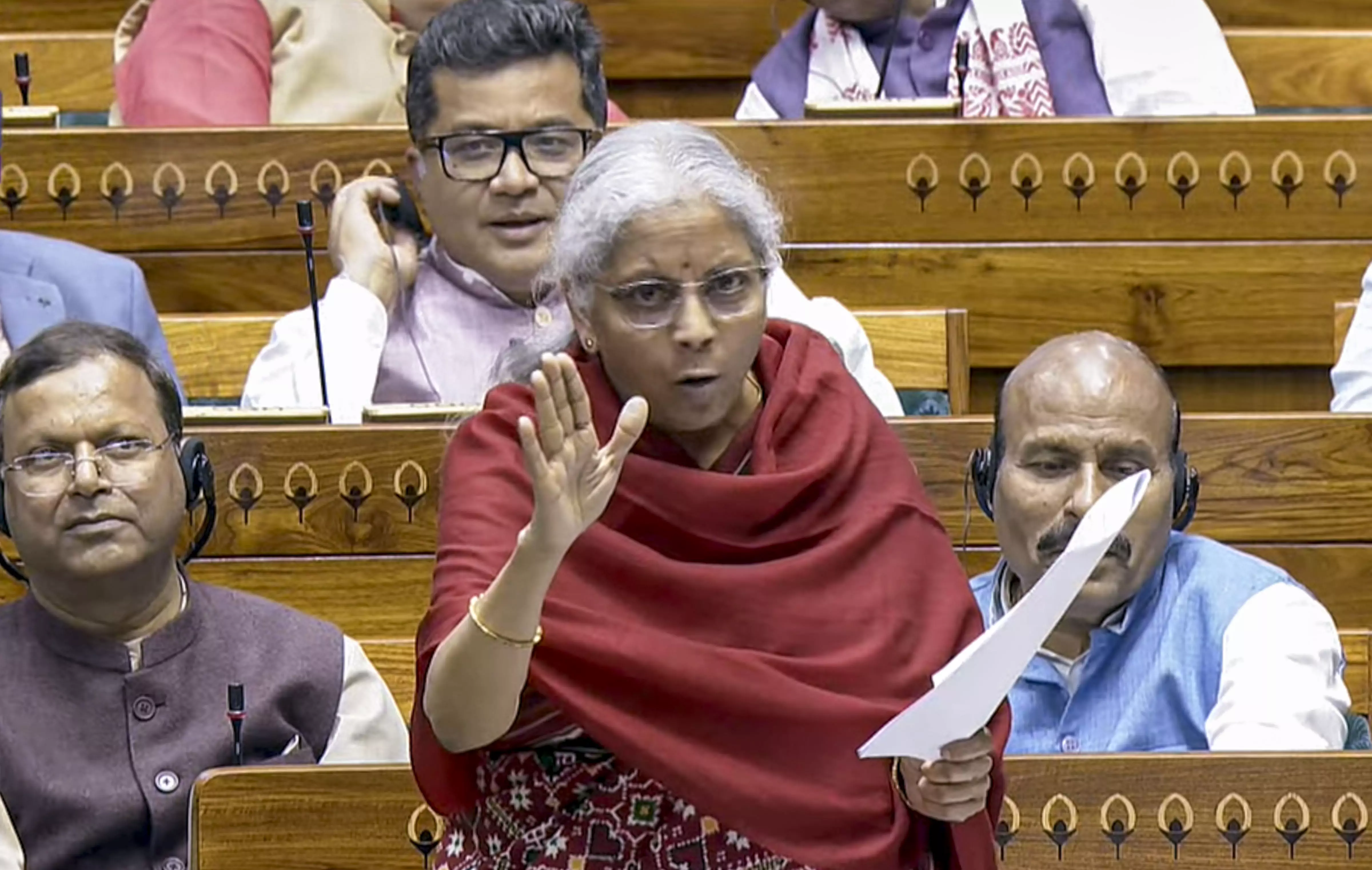Nirmala Sitharaman Defends Government’s Fiscal Policies, Economic Growth Allocations
Highlighting that the capital expenditure outlays has not come down, but it has gone up, Sitharaman said that the amount going to states was also not reduced.


�New Delhi:�Slamming the Opposition in her Budget reply to the debate in Lok Sabha, Union finance minister Nirmala Sitharaman on Tuesday said that this Budget has come at a time of immense uncertainties, and the change in the global macroeconomic environment makes it more challenging. She also deliberated a series of economic issues that the country is facing today, including capital expenditure or capex, boosting rural demand, agriculture, small businesses, investment and exports amidst global uncertainties.
Addressing key concerns raised by members of the august House, the minister defended the government’s fiscal policies and economic growth allocations as well, saying that the government is taking measures to reduce debt since 2021 and to make public money go for productive asset building activities. “Making Budget more challenging now as global scenario changed 180 degrees in last 10 years. I am also very grateful that members have chosen to get into the details of the Budget,” she said.
Highlighting that the capital expenditure outlays has not come down, but it has gone up, Sitharaman said that the amount going to states was also not reduced. She also discussed the Union Budget, noting an increase in capex outlays and the challenges posed by the global economic environment. “The government has focussed on using borrowings for capital expenditure and boosting prosperity in villages, agriculture, MSMEs, investment, and exports amidst global uncertainties,” she said.
On the capex, in particular, the FM also said that the effective capex is 4.3 per cent and the fiscal deficit is 4.4 per cent of the GDP for 2025-26. “It indicates that government is using entire borrowed resources for financing effective capital expenditure, creating capital assets. Also, it intends to use about 99 per cent of borrowed resources to finance effective capital expenditure in the upcoming year (2025-26),” the finance minister said.
“The sectoral outlays in the year 2025-26 include agriculture which gets Rs 1.71 lakh crore, rural development which gets 2.67 lakh crore, urban development and transport gets Rs 6.45 lakh crore, health and education get Rs 2.27 lakh crore, defence (which excludes defence pension) gets Rs 4.92 lakh crore,” she added.
On rising inflation, Sitharaman said that inflation management is the highest priority of this government and overall retail inflation is within the notified tolerance band of 2-6 per cent. “Food inflation which was impacted by adverse weather conditions or supply chain disruptions has all been attended to, and we are continuing to do it. Besides, double-digit inflation rates under the earlier UPA regime is a thing of the past now and unemployment rate has declined from 6 per cent in 2017-18 to 3.2 per cent in 2023-24,” she claimed.
On the weakening of rupee against US dollar, the Sitharaman also said that various domestic and global factors influence rupee movement such as movement of dollars index, level of capital flows, level of interest rates, movement in crude prices and that the currency volatility across major countries is really extensive. “The Indian rupee has depreciated 3.3 per cent against the US dollar between October 2024 and January 2025, but the decline has been lower than that in some of its Asian peers, while South Korean Won and Indonesian Rupiah depreciated by 8.1 per cent and 6.9 per cent, respectively in this period,” she said.
On global conflict, the finance minister comapred India with other countries, saying that there is a continuation of global conflict in the Middle East, Russia-Ukraine War continues, stagnation in global GDP and sticky inflation in the emerging markets are all vitiate the atmosphere in the entire developing economies. “We ideally have a situation which should encourage free trade, we are seeing no restriction, where we very strongly vouch for globalisation, we see lot more fragmentation, where we need fiscal prudence, we are seen rising debts,” she said.






































